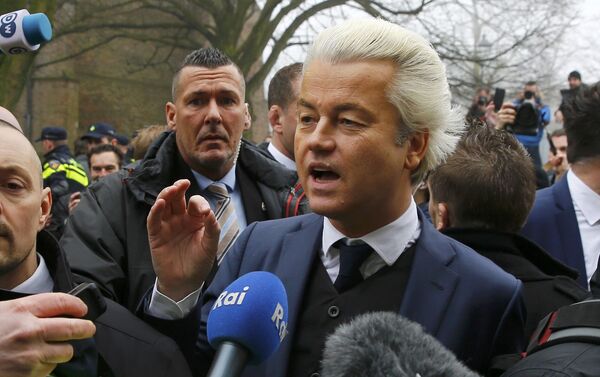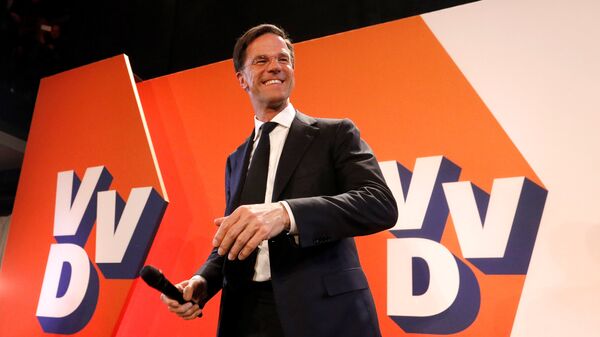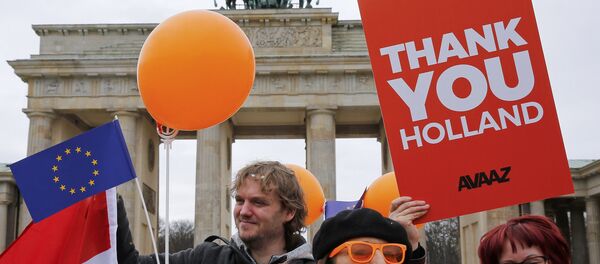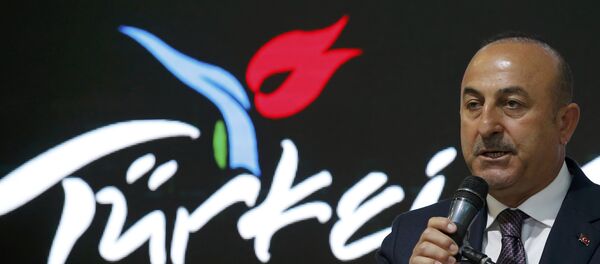The prospect of the far-right, anti-EU and anti-immigration candidate, Geert Wilders, emerging as the Netherland's new prime minister would undoubtedly have been responsible for more than a few sleepless nights on the part of supporters of a European Union whose future has been cast into doubt recently, given the traction gained by far-right anti-EU parties and politicians across its member states.
But then came the global economic crash of 2008, which quickly morphed into a full-blown political crisis that was exacerbated by the implementation of harsh austerity measures across the West. Involving the slashing of government spending and investment in welfare programs and public services, austerity was introduced not in service to economic prudence or logic, but instead to a neoliberal ideological paradigm under which society's role is to serve the needs of the economy rather than the economy serving the needs of society.
The ensuing economic hardship suffered by the working class and poor across Western Europe led to a rising tide of hatred for the political classes and the liberal elites in whose interests they have long ruled at their expense. Previously marginal far-right parties were able to ride this wave of anti politics — fueled by growing poverty, inequality, and alienation — with their nationalist and nativist agendas.
In sum, the EU and its liberal proponents have only themselves to blame for the crisis that has engulfed it. The treatment of Greece in particular, whose people were subjected to brutal economic shock treatment in 2015, revealed that scratch the surface of the EU's economic and political institutions and you were left in no doubt that organized hypocrisy rather than democracy reigned.
The momentum gained by the centrifugal forces of the far-right across the EU in recent years looked to be well nigh unstoppable going into the Dutch election. Geert Wilders, as with the UK's Nigel Farage and France's Marine Le Pen, has been elevated to mainstream prominence by dint of this momentum.

As with Farage and Le Pen, Wilders had taken advantage of the anger at the liberal status quo by ordinary working people on the back of the austerity measures adopted by various liberal governments, previously explored. Along with the intensification of Islamophobia in Europe, arriving on the back of a pattern of indiscriminate terrorist attacks, combined with a refugee crisis that had polarized Europe, it saw him enter the election neck and neck in the polls with current Prime Minister Mark Rutte of the country's ruling Party for Freedom and Democracy.
Adding to Wilder's prospects of victory was the vicious diplomatic row that exploded recently between the Netherlands and Turkey. Here it is hard not to be sympathetic to the stance taken by the Dutch government in blocking the attempt by Turkey's foreign minister, Mevlut Cavusoglu, to fly to the Netherlands to address a political rally in Rotterdam attended by Turkish expatriates. The aim of the rally, and Cavusoglu's attendance, was to curry support for President Erdogan, whose attempt to arrogate more presidential power is set be decided in a nationwide referendum in Turkey in April.
There is little doubt that Dutch Prime Minister Mark Rutte made the decision to block the Turkish foreign minister's visit to the country with the popularity of Geert Wilders and the imminent election in mind. In advance of the election, Wilders had some choice words to say about the Turkish leader, describing President Erdogan as an "Islamist" and a "dictator" at a rally held outside the Turkish embassy in The Hague prior to the ensuing diplomatic row..
The vituperation directed by Erodgan against the Dutch government and Geert Wilders in the wake of the decision to block the visit has been off the scale. President Erdogan has labelled the Dutch as "fascists", while in response to Rutte's election victory over Wilders, his foreign minister, Mr. Cavusoglu, is reported to have said, "Where will you go? Where are you taking Europe? You have begun to collapse Europe. You are dragging Europe into the abyss. Holy wars will soon begin in Europe."
Clearly, this is a row that will run for some time yet. It constitutes yet another nail in the coffin of relations between Turkey and Europe; and indeed may well be the final nail in that coffin, putting paid once and for all to the prospect of NATO-member Turkey ever achieving the EU membership it has coveted for decades.
When it comes to Wilders' close run defeat in the Dutch election, it begs of the question of whether it marks the beginning of the end of the momentum enjoyed by far-right anti-EU candidates and parties across Europe in recent times? With a French election looming next month, there are still a few sleepless nights to come in Brussels before that question is answered.
The views expressed in this article are solely those of the author and do not necessarily reflect the official position of Sputnik.




